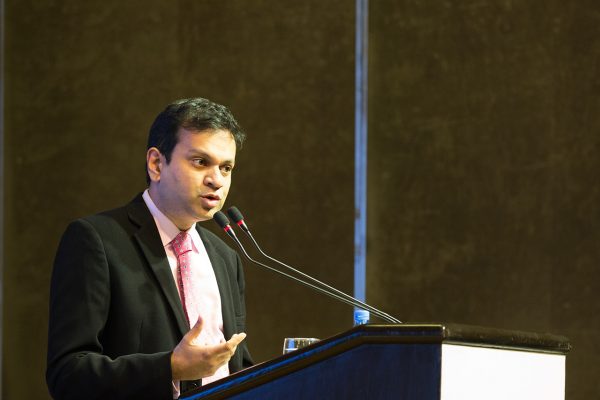Courage in the Heart: The story of how women in rural Bangladesh are radically changing the fabric of their society
Reading Time: 3 minutes
The below post was written by BRAC intern Annie Escobar and originally published on the NYU Reynolds Program Blog. This past summer, as part of our Reynolds Program Internship program, Patricia Schneidewind (a fellow Reynolds scholar) and I traveled to Bangladesh for nine weeks to document BRAC, the world’s largest development organization’s social justice initiatives. Today, on the 100th anniversary of International Women’s Day we are launching Courage in the Heart, an online storytelling platform featuring the stories of 12 women who are radically changing the consensus about the value of women by organizing to demand their rights. Visit the site here: www.brac.net/courageintheheart
This past summer, as part of our Reynolds Program Internship program, Patricia Schneidewind (a fellow Reynolds scholar) and I traveled to Bangladesh for nine weeks to document BRAC, the world’s largest development organization’s social justice initiatives. Today, on the 100th anniversary of International Women’s Day we are launching Courage in the Heart, an online storytelling platform featuring the stories of 12 women who are radically changing the consensus about the value of women by organizing to demand their rights. Visit the site here: www.brac.net/courageintheheart
Mussamat struck us with her beauty from the moment we saw her. She greeted us with a brilliant smile, making me second guess if she was the woman we would be interviewing. I didn’t expect someone who had acid thrown on her face (by her husband after he insisted her family pay a higher dowry) to be so full of life. BRAC is now fighting her case in court to bring the perpetrators to justice.
Her interview was like many others. After convincing the inevitable crowd of interested neighbors to give us some space, we sat, just the three of us, in her courtyard. Ruhul, our good friend and translator, gave basic instructions about what our project was and then basically just told her to talk and then left (the women felt more at ease without the male presence).
Mussamat began speaking. She spoke quietly at first and then her voice developed a strength and a rhythm. For long moments she stared into the distance, letting a loud heaviness settle into the spaces between her words. My limited Bangla meant that I could only understand bits and pieces, but it was as if my body could feel it all. So much is communicated through the face, the voice, and the breath. My heart felt compressed and breathing became difficult. When she was finally done, half an hour later, we quietly shut the camera off and all held each other and cried. And then, in a moment that is still profoundly humbling, Mussamat took her scarf and slowly, gently wiped the tears and sweat from my face. It is a moment I draw strength from every day.
Suddenly, a feeling of lightness came over us and we all started cracking up. We laughed and danced in that courtyard until it was time to leave.
The last image of her in my mind is of her beaming, holding her daughter, sending us away with a giant wave. As we drove away, I asked Ruhul if he heard her say how old she was.
“22,” he answered.
The same age as Patricia.
When we left her house that day I made myself a promise. That I would make sure that we were not the only ones carrying that testimony.
To me, our experience in Bangladesh was a testament to the power of solidarity and connectivity. With the help of the BRAC staff and Ruhul, we approached these women and incredibly, they let us into their lives and revealed with intimacy some of their most painful and proud moments. The compassion we tried to bring to our interviews hopefully contributed to the trust with which they revealed their stories, but I also think it was something else too. The last words that Julekha, a mother in Mymensingh whose daughter was raped and murdered, said to us were, “When you leave, tell everyone that you heard my story. I have told you everything. I want to feel justice.” Many of the women seemed to see the camera as an amplifying tool for their testimony and they spoke out to their imagined audience on the other side of the camera. Now that audience is there, listening.
Today, a year after launching this project, Mussamat’s, Julekha’s and others’ stories will be passed on. My hope is that these women and their stories can give others the inspiration to believe in their own strength and courage to confront injustice.
Visit www.brac.net/courageintheheart to see these stories. Carry them with you. And please, share this project with anyone you can.






